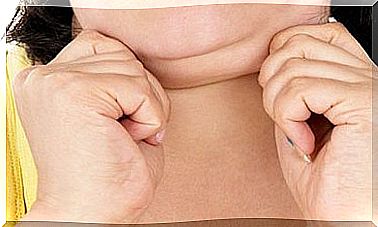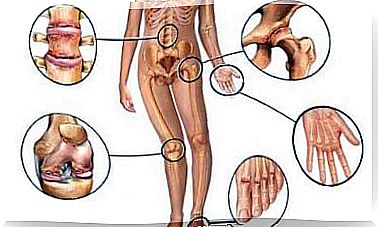What You Should Eat If You Have Irritable Bowel
Although each person should check which foods are the best or worst for them, the truth is that there are some, such as fruits and vegetables, which tend to be very recommended in case of irritable colon.

Irritable bowel syndrome is a disorder that causes, among other effects, drastic changes in intestinal transit and severe abdominal pain. It can alternate diarrhea with constipation and is closely related to eating. Fortunately, in most cases, it does not determine serious pathologies and its symptoms can be controlled by improving lifestyle and diet.
Therefore, below we will advise you what you should eat if you have irritable bowel and , of course, what foods you should avoid. Of course, this is not a substitute for what your doctor tells you. In any case, it would complement it.
What is irritable bowel?
According to experts from the University of Navarra Clinic, irritable bowel syndrome (IBS) is a chronic disease characterized by causing abdominal pain and changes in bowel rhythm.
It could be said that it is a set of signs and symptoms that are commonly manifested through intestinal discomfort and diarrhea. It can even have different incidents depending on where you live.
For example, in industrialized countries it can be directly related to stress and type of diet. It can also be due to mood, since it influences intestinal secretions and trigger diarrhea. In fact, this problem affects people of all ages.
How is irritable bowel syndrome diagnosed?
It could be suspected that you suffer from irritable bowel if you have abdominal pain it should appear for at least 3 days in a row and, in addition, it is accompanied by:
- Increase in symptoms depending on the shape or appearance of the stool.
- Appearance of symptoms after changes in the frequency of bowel movements.
- Symptom improvement after evacuation.
According to the experts of the MSD Manual, the diagnosis is made based on the physical examination of the patient and the performance of certain tests (blood tests, ultrasound, X-rays or a colonoscopy).
What should you do if you have an irritable bowel?
Although the diet should be different for each patient, the following general guidelines could be followed if you think you suffer from irritable bowel:
Moderate fiber intake
- On the one hand, the intake of insoluble fiber (which comes from whole foods such as bread, pasta or cereals) should be reduced so as not to contribute to greater imbalances in intestinal transit.
- On the other hand, increase the consumption of soluble fiber, which improves stool production and stool frequency. This type of fiber can be found for example in legumes, fruits and vegetables.
Avoid fats and sugars
Foods rich in fat, refined sugars and fructose (sugar found in some fruits such as apricots or cherries) can increase irritable bowel symptoms, as stated by dietitian and nutritionist Juana María González Prada.
Pay attention to drinks
- Coffee and tea should be ingested in moderation. Instead, alcoholic beverages should be avoided entirely.
- Likewise, it is advisable to drink enough water per day. This ensures the hydration of the whole body, but above all it helps to soften the stool.
- Water or herbal teas (such as linden) can relieve constipation.
Manage stress

It is very important to keep worries, nerves and anxiety at bay. Although it may seem easy to say, we should do our best not to allow stress to get the better of us.
Many times it is a question of attitude and how we take each situation. Do not worry excessively, do not take work problems home, take time to do what you like and sleep well. If you add to that a good diet in a short time you can reduce the symptoms of irritable bowel syndrome.
Foods suitable for irritable bowel
Eating habits are more than related to this problem. The factors that affect the most are the frequency and amount of food eaten. For this reason, it is recommended to make more intakes, but in a smaller quantity each. For example, instead of eating 3 large meals, it is better to eat 6 small meals.
Another aspect to take into account would be the way of eating. You should chew each bite a lot and eat slowly. The rush only brings gas and indigestion.
It would also be good to maintain a routine in terms of meal times. That is, try to eat breakfast, lunch, and dinner at around the same time every day.
Among the foods allowed for irritable bowel we highlight:
Fruit

So that they are not so harmful, the fruits should be consumed without skin, or even boiled or cooked. The most prominent are apple, watermelon, pear, peach and banana.
Vegetables
Better to steam them so that they do not lose the nutrients and are easier to digest. The most suitable are lettuce, asparagus, onion and garlic.
Legumes and cereals
Peas, lentils and soy can be great allies against irritable bowel. In the case of cereals, the most recommended are wheat, rye and barley.
Dairy products

If you are lactose intolerant you can consume vegetable milks. Otherwise, choose low-fat dairy to supplement your diet.
Doubts or discomfort? Consult with your doctor
If you have any questions, it is best to consult your doctor. It is not advisable to consume remedies or food if you have doubts about their effect on the body.
On the other hand, it must be remembered that no food, drink or natural remedy is capable of curing or replacing the treatment prescribed by the doctor. In any case, it could complement it.









